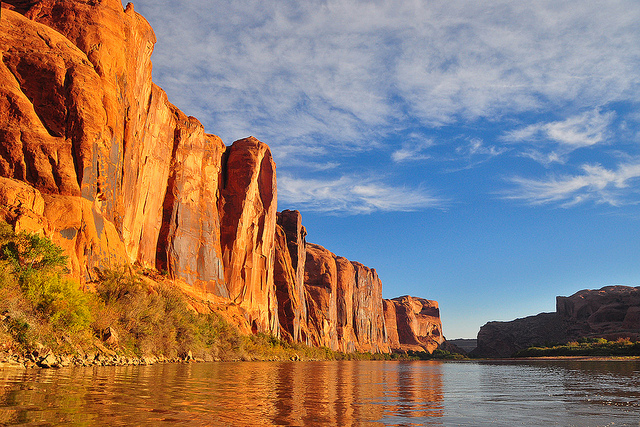Access to clean healthy water is vital to our native communities. We use it for drinking, fishing, agriculture, and in some instances, for generating power. Some water issues facing tribal communities include:
Water Shortages
Did you know that nearly 40% of people on the Navajo Reservation don’t have running water? The Navajo Nation is the size of West Virginia. It’s home to 173,000 people, and 38% of its members are “severely poor.” Child poverty rates are double the national average (Census 2010). And, about 40% of Navajo members don’t have a sink or a toilet at home.
Water Contamination
Another water issue facing many reservations is water quality. In some cases, their drinking water does not meet EPA standards (EPA, 2007). Water used by the Santee Sioux tribe and the Omaha tribe in northeastern Nebraska, for example, has been shown to contain toxins known to cause health issues.
Tribal communities throughout the U.S. dedicate time and resources to study, test, and implement programs to keep water healthy for tribal members. Check with your Natural Resources Department to see how you can get involved!
Learn more:


